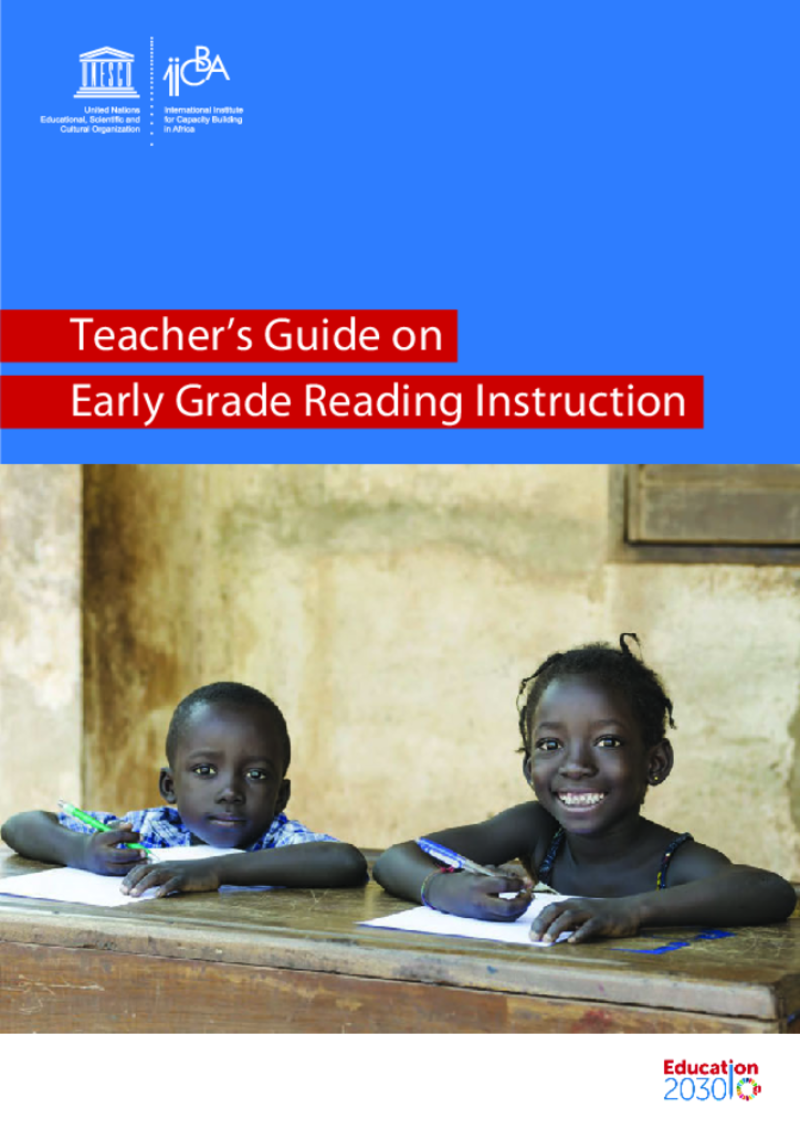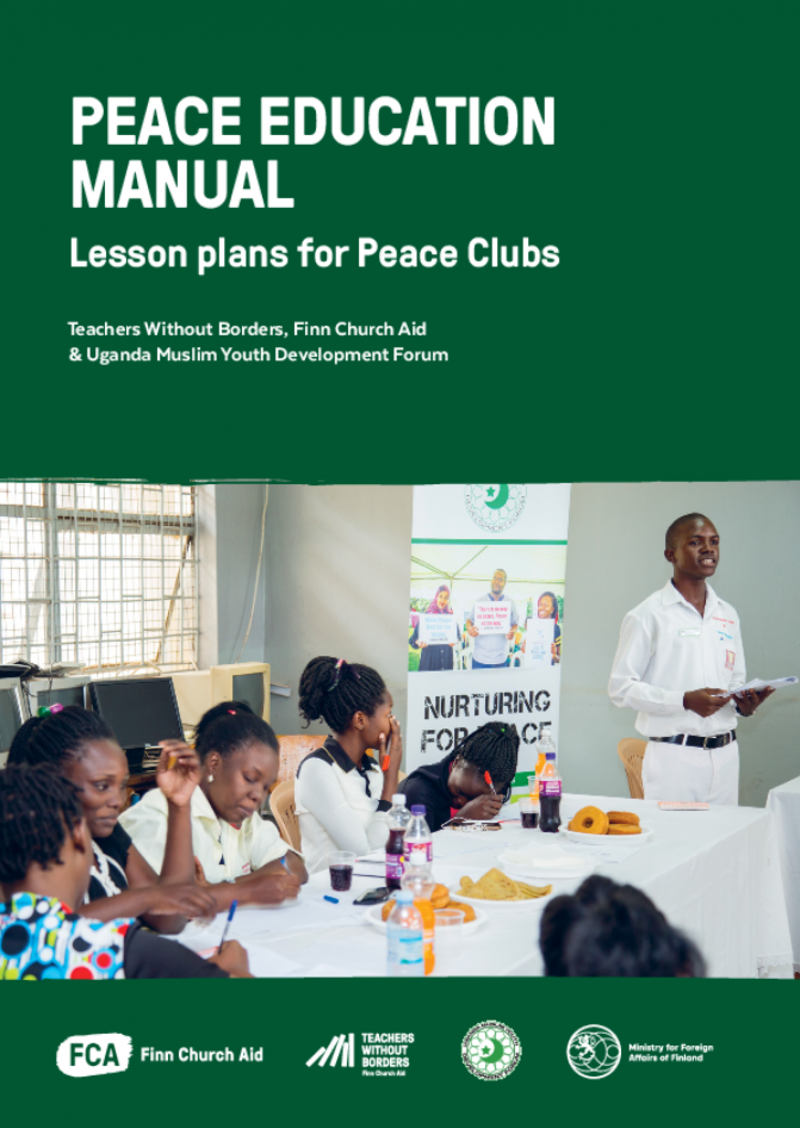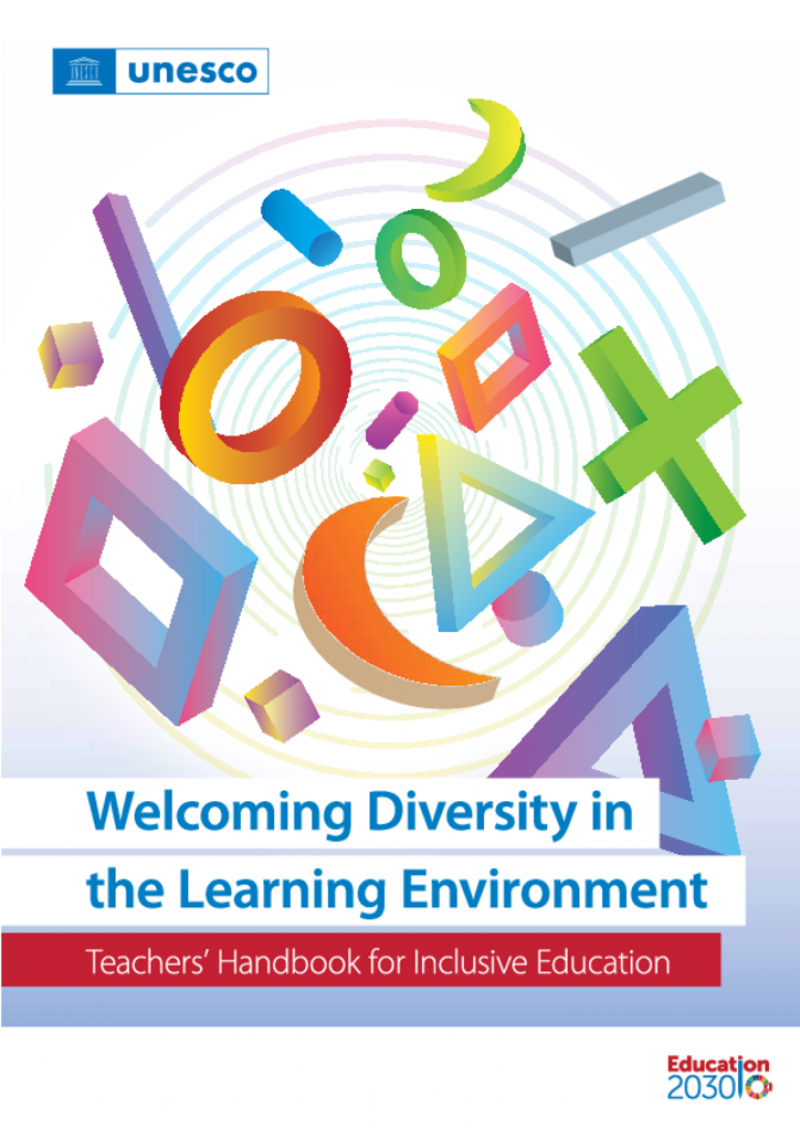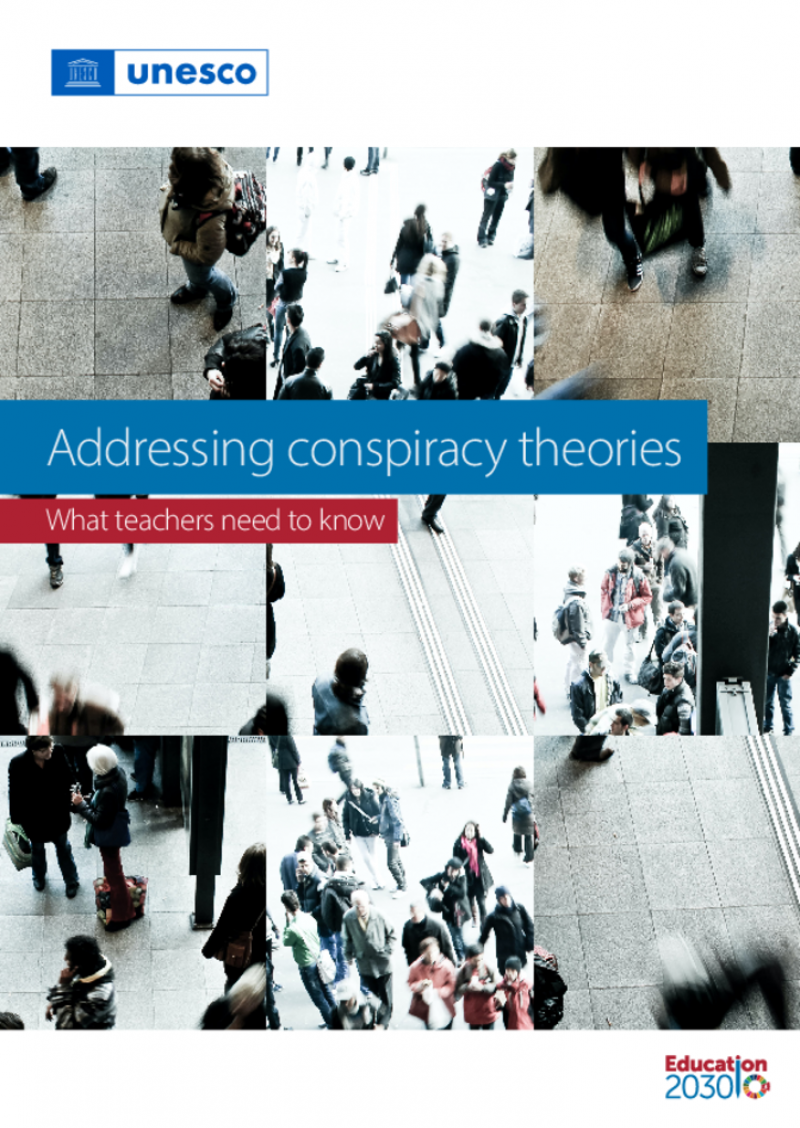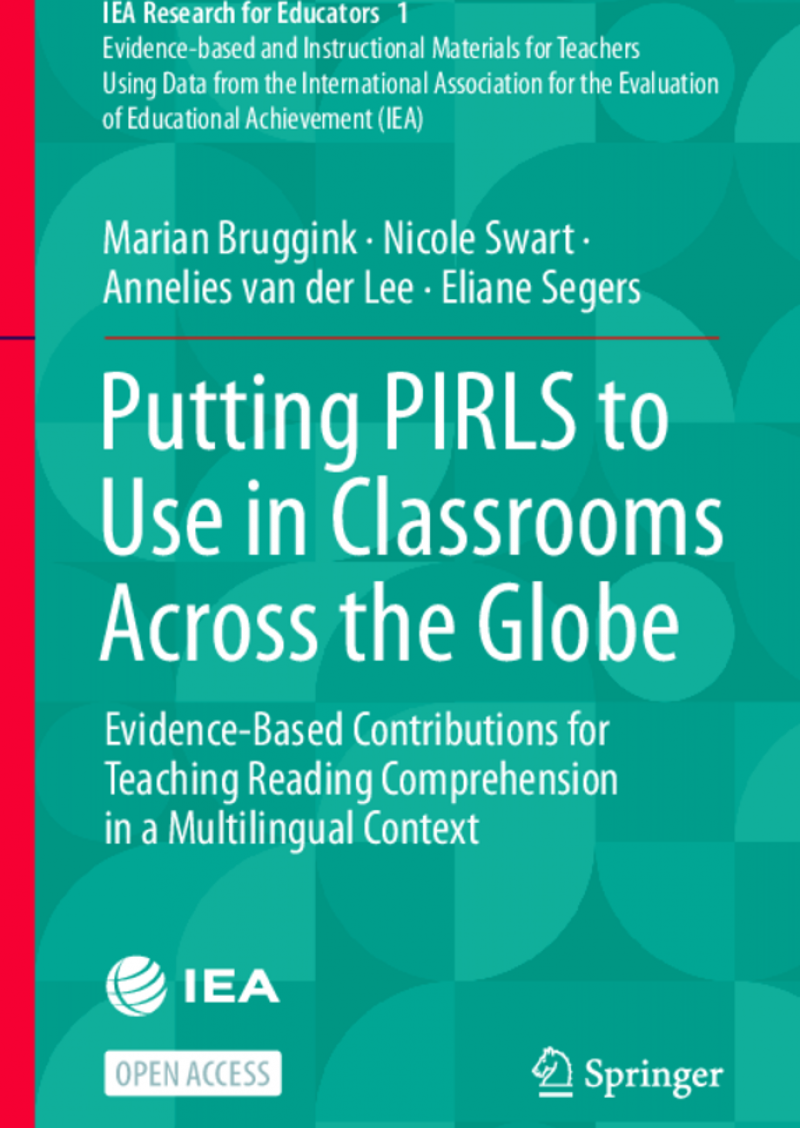Centre de Ressources pour les Enseignants
Affichage de 1 à 20 sur 23
Teacher's guide on early grade reading instruction
Reading is a fundamental ability for all other learning activities. Students can learn only when they comprehend, and this requires appropriate reading skills in the first place. Appropriate reading skills support the learning of increasing amounts of instructional content. This is why children who fail to learn to read during their early years of schooling will encounter more difficulties in later grades and a higher risk of drop out. Quality early grade reading instruction is critical in preventing these challenges and risks as well as in protecting children’s rights to education and ensuring better chances of success in their life.
Teachers are at the center of reading instruction and they need to be trained with pedagogical knowledge and management skills in order to provide students relevant and quality instruction. It has however been noted that teachers in many countries, especially low-income countries in sub-Saharan Africa, lack the proper training and support on ways of teaching early grade reading to their students. Therefore, a comprehensive and practical guide on early grade reading is highly needed to bridge this gap.
This guide aims to empower teachers in Africa by equipping them with the knowledge and skills of early grade reading, including the simple identification of the main pillars of reading, lesson planning and classroom management, taking into account the context in Africa. Subsequently, these teachers will help their students build basic reading skills in their early years of schooling.
A Teacher's Guide for Arts, Music and Drama in Africa
Art, music and drama have had a pivotal role in the livelihood of human beings. This is clear by the wealth of literature, architecture, fine art, theater and music that define human past, present and future. The inherent creative ability and a yearning to express ourselves is what gives value to art, music and drama as companion components in human evolution.
This teacher's guide covers art, music, dance, drama, experiential learning, community engagement, and how to integrate these aspects into curriculum. Additionally, this document provides lesson plans for primary school students in these subject areas.
Assistive Technologies: Inclusive Teaching Guidelines for Educators
Assistive technologies encompass tools and services designed to enhance learners' independence, participation, and success, helping them reach their full potential. This guide explains how educators can use assistive technology to create an inclusive environment that supports diverse learning styles and information processing. It introduces various assistive technologies that cater to individual learner needs, helping them overcome challenges. Educators should view assistive technologies as resources for all students, integrating them into the classroom to ensure widespread benefit and minimize the risk of stigmatization.
Active Teaching and Learning Manual
The Active Teaching and Learning booklet presents the principles and practices of learner centered pedagogy as a teaching approach to achieve quality education. It is accompanied by cards on methods, techniques and tools, which provide teachers with examples and tips for classroom implementation. The booklet was developed by the Teacher Instructor Education Training department of the Ministry of Education, Science Technology and Sports of Uganda, with support from the Belgian Development Agency, in the framework of the Teacher Training and Education project.
How to use ICT tools in teaching and learning
This booklet presents a selection of ICT tools to integrate into teacher training in Uganda. Every tool is accompanied with creative ideas and suggestions on how to engage learners and enrich lessons.
General teaching methods
This course aims to get the best out of the teaching practices from pre-service teachers, in-service teachers and anyone who is eager to contribute to quality education. It has been written by the Teacher Training Education Project, implemented by Enabel and the Ministry of Education and Sports in Uganda.
Peace Education Manual. Lesson plans for Peace Clubs
This Peace Education Manual has been developed in collaboration with Finn Church Aid (FCA) Uganda, local partner Uganda Muslim Youth Development Forum (UMYDF) and Teachers Without Borders (TWB) Network Finland.
The manual was developed to strengthen the pedagogical and methodological quality of local peace clubs during the spring and summer of 2022. The contents of the manual were successfully piloted with more than 480 young people in eight lower secondary school peace clubs established and run by UMYDF with the support of FCA in Uganda. Two of the peace clubs are located in the Bidibidi Refugee Settlement, one of the largest refugee settlements in the world.
The material consists of 34 lessons plans and is primarily aimed for young people. The different sections and activities of the material can be used flexibly in training, clubs, or, for example, as individual lessons on peace building, socio-emotional skills, conflict resolution or cooperation skills. The exercises are functional, learner-centered and emphasize active participation of youth. The material is adaptable for use anywhere in the world.
FCA and UMYDF have been working together since 2016 in Uganda to promote the positive role of youth in conflict prevention and peacebuilding. In our work, peace education is defined as a holistic, multidisciplinary and transformative process that seeks to develop capacities that promote non-violent conflict resolution, respect for human rights and active participation.
ETF READY model
The European Training Foundation's READY model (Reference model for Educators' Activities and Development in the 21st century) offers a structured way to identify the professional practices and development needs of the 21st century educators.
Welcoming diversity in the learning environment: teachers' handbook for inclusive education
This teachers' handbook is intended to serve as a practical resource to help teachers and teacher educators to gain understanding of the multiple issues of inclusion in their day-to-day work and acquire competencies that facilitate inclusive pedagogy. The handbook is comprised of nine modules – each of which presents the conceptual discussion of key topics related to inclusion and diversity and features some promising case studies, instruments and approaches. It also provides a framework for ensuring learning continuity in the wake of crises and emergencies such as the COVID-19 pandemic, and deals with a range of topics aimed at building the capacities of teachers and teacher educators for recovery and resilience in education systems in the COVID-19 context.
Transformative pedagogy: a teachers’ guide for peace and resilience building in North Africa
This guide is designed to build the capacity of teachers so that they are informed and empowered in why and how to educate for peace-building. It offers an analysis of conflict, examines the role of ethics, expands on the elements of transformative pedagogy. It also provides practical tools to support learners’ active participation in shaping the world around them and assess learners’ understanding of peacebuilding concepts and skills, all while engaging the community.
Addressing anti-semitism in schools: training curriculum for secondary education teachers
This publication is part of a four-volume set of training curricula to address anti-Semitism in schools. This volume focuses on the training curriculum for secondary education teachers. Each volume in this set aims to assist trainers in the field of education globally to work effectively towards strengthening the capacity of teachers to prevent and respond to antiSemitism, this specific and highly dangerous type of prejudice directed at Jewish people. In this sense, the curriculum addresses anti-Semitic prejudice and perceptions of Jews, phenomena which often also fulfil a social and political function in societies around the world; it is not material aimed at preparing teachers for intercultural dialogue.
Addressing anti-semitism in schools: training curriculum for vocational education teachers
This publication is part of a four-volume set of training curricula to address anti-Semitism in schools. This volume focuses on the training curriculum for vocational education teachers. Each volume in this set aims to assist trainers in the field of education globally to work effectively towards strengthening the capacity of teachers to prevent and respond to antiSemitism, this specific and highly dangerous type of prejudice directed at Jewish people. In this sense, the curriculum addresses anti-Semitic prejudice and perceptions of Jews, phenomena which often also fulfil a social and political function in societies around the world; it is not material aimed at preparing teachers for intercultural dialogue.
Addressing anti-semitism in schools: training curriculum for school directors
This publication is part of a four-volume set of training curricula to address anti-Semitism in schools. This volume focuses on the training curriculum for school directors. Each volume in this set aims to assist trainers in the field of education globally to work effectively towards strengthening the capacity of teachers to prevent and respond to antiSemitism, this specific and highly dangerous type of prejudice directed at Jewish people. In this sense, the curriculum addresses anti-Semitic prejudice and perceptions of Jews, phenomena which often also fulfil a social and political function in societies around the world; it is not material aimed at preparing teachers for intercultural dialogue.
Addressing anti-semitism in schools: training curriculum for primary education teachers
This publication is part of a four-volume set of training curricula to address anti-Semitism in schools. This volume focuses on the training curriculum for primary education teachers. Each volume in this set aims to assist trainers in the field of education globally to work effectively towards strengthening the capacity of teachers to prevent and respond to antiSemitism, this specific and highly dangerous type of prejudice directed at Jewish people. In this sense, the curriculum addresses anti-Semitic prejudice and perceptions of Jews, phenomena which often also fulfil a social and political function in societies around the world; it is not material aimed at preparing teachers for intercultural dialogue.
Addressing conspiracy theories: what teachers need to know
This document intends to support educators limit the dissemination of conspiracy theories by responding to them when they are shared among learners or within the wider school community.
Cyberbullying on social media: an analysis of teachers’ unheard voices and coping strategies in Nepal
Teachers can be potential victims of cyberbullying, particularly targeted by their students at their workplaces.
This article explores teachers' individual coping strategies of sharing, ignoring and enhancing self-efficacy to handle technology strongly and confidently, and it concludes with the implications of collaborative coordination necessary for the development of strong policies and strict cyber laws for ensuring teachers’ cybersecurity in similar contexts.
Teachers’ self-efficacy in preventing and intervening in school bullying: a systematic review
This article presents a systematic review of existing literature on the extent of teachers’ self-efficacy in managing bullying and its connection to the likelihood that teachers will intervene in bullying, to their intervention strategies, and the prevention measures they employ, as well as students’ bullying behavior and their experiences of victimization.
The study presents practical implications in relation to teacher initial education and professional development: teachers with higher self-efficacy tend to intervene more often in bullying situations, so it's important that teacher training programs are designed to support teacher's self-efficacy, through the use of appropriate methods, such as the use of role-play to practice specific professional behaviours.
Lignes directrices pour les enseignants et les éducateurs en matière de lutte contre la désinformation et de promotion de l’habileté numérique par l’éducation et la formation
Les présentes lignes directrices proposent des orientations concrètes et pratiques aux enseignants et éducateurs, principalement du primaire et du secondaire.
Elles offrent des explications claires sur des concepts techniques, des exercices à faire en classe concernant la vérification des faits, des informations sur la manière d’encourager les «bonnes» habitudes en ligne et des moyens d’évaluer les élèves sur leurs compétences dans le domaine de l'habileté numérique.
Putting PIRLS to use in classrooms across the globe. Evidence-based contributions for teaching reading comprehension in a multilingual context
This book aims to bridge the gap between science and practice and help teachers transform the latest scientific insights regarding reading comprehension into didactic guidelines to use in everyday practice for all students. It consists of two parts: Part I, Reading Comprehension: From Research to Practical Teaching Guidelines, comprises three chapters and discusses the teaching of reading comprehension in general. In Part II, Teaching Reading Comprehension in a Multilingual Classroom, the focus is on multilingual students.
